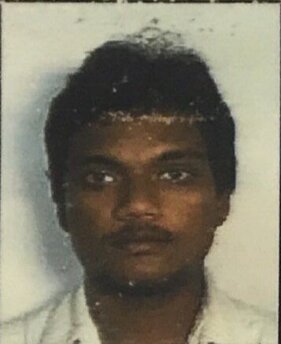What is LASIK (Laser-Assisted In Situ Keratomileusis)?
LASIK (Laser-Assisted In Situ Keratomileusis), commonly referred to as laser eye surgery or laser vision correction surgery, is a popular surgical procedure used to correct common vision issues such as nearsightedness (myopia), farsightedness (hyperopia), and astigmatism. LASIK surgery is performed by an ophthalmologist who uses a laser or microkeratome to reshape the eye's cornea to improve visual acuity. For most individuals, LASIK provides a long-lasting alternative to eyeglasses or contact lenses. After LASIK, you may not require your glasses or contact lenses at all. Or, you may require them only in specific situations, like when driving at night or reading.
LASIK surgery is normally performed on an outpatient basis and is relatively quick, often taking less than 15 minutes per eye. Patients usually experience enhanced vision within a day or two after the surgery, and many can return to work and routine activities within a few days. However, some temporary discomfort, dryness, or sensitivity to light might be experienced by some people during the initial recovery phase.
It's crucial to note that not everyone is a fit candidate for LASIK surgery. Various factors, such as the stability of your prescription, corneal thickness, and overall eye health, play a significant role in determining the eligibility of the patient. An eye care professional will conduct a thorough examination to decide if LASIK is the right choice for you.
What Are The Types Of LASIK Eye Surgery?
There are different types of LASIK eye surgery techniques. The main types of LASIK surgery include the following:
- Bladeless LASIK: Bladeless LASIK, also known as an all-laser LASIK, is an evolved version of the traditional LASIK surgery in which a laser called a femtosecond laser is used to make the flap of the cornea instead of a blade. Since the flap is created using a laser instead of a blade, the resulting flap is of equal thickness. It has cleaner edges and heals faster. After the operation, the doctor prescribes topical anesthetic drops to encourage healing and prevent infections. Bandages or stitches are generally not required in this case.
- Wavefront-guided LASIK: Wavefront-guided LASIK is a method where laser correction is tailored to the specific pattern of corneal refractive abnormality in each patient. As the cylindrical abnormality in corneas is not always consistent, applying a homogeneous correction over the entire region may not give the optimal result. In this procedure, the surgeon uses the wavefront device to send a safe ray of light into the eye. The light gets reflected off the posterior portion of the eye. It goes out through the pupil before it finally reaches the aberrometry device, where the spherocylinder refraction is calculated. The reflected wave of light is then arranged into a unique pattern that measures the sphere and cylinder of the eye, as well as the other aberrations. Acquired visual measurements are then displayed as a three-dimensional (3D) map, allowing the specialist to personalize the LASIK procedure for the specific visual requirements of each patient.
- Topography-guided LASIK: Topography-guided LASIK is an advanced treatment for myopia, hyperopia, and astigmatism. The procedure customizes the laser treatment to the unique surface shape of the eye. Topography-guided LASIK surgery includes wavefront optimization, which is designed to enhance the final shape of the surface of the cornea to prevent side effects such as glare and halos at night.
- SMILE (Small Incision Lenticule Extraction): SMILE is the newest form of laser eye surgery. It is a minimally invasive laser vision correction procedure that does not form a corneal flap. Instead, a femtosecond laser makes a small lenticule inside the cornea, which is then extracted through a small incision to reshape the cornea and improve vision.
- PRK (Photorefractive Keratectomy): PRK is a type of laser eye surgery that is used to enhance vision by correcting refractive errors in the eye. PRK predates LASIK surgery and is a similar procedure. Both PRK and LASIK work by reshaping the cornea, which improves the eye's ability to concentrate. However, unlike LASIK surgery, PRK does not involve cutting a flap in the cornea. Instead, PRK eye surgery involves brushing away the cornea's outermost layer (called the epithelium), which shows the underlying corneal tissue. Then the VISX excimer laser reshapes the corneal tissue to fix the refractive errors. Overall, the PRK procedure takes about 10 minutes per eye.
- LASEK (Laser Epithelial Keratomileusis): This form of laser-assisted refractive surgery combines the benefits of LASIK and PRK with fewer complications. In this procedure, the surgeon uses an alcohol solution of 18 to 20 percent on the top of the cornea to separate the thin layer. This produces a thinner opening to reshape the cornea, making this an excellent option for people with high refractive errors or thin corneas.
- EPI-LASIK: This form of LASIK utilizes a small suction device and an epi keratome blade to make a very thin flap in the epithelial layers of the cornea. This forms a thinner flap than many lasers or the microkeratome used in other types of LASIK surgery.
- Laser blended vision (LBV): This laser procedure is best for presbyopic patients. Presbyopia is an age-related condition that affects near vision. In this procedure, one eye is corrected for distance vision, while the other eye is left slightly nearsighted. This monovision approach permits the brain to blend the images from both eyes, providing a broader range of clear vision from near to far.
Cost Of Various Types Of LASIK Surgery In India
|
Types of surgery
|
Minimum Cost (Rs.)
|
Average Cost (Rs.)
|
Maximum Cost (Rs.)
|
|
Bladeless LASIK
|
25,000
|
47,500
|
70,000
|
|
Wavefront-Guided LASIK
|
30,000
|
50,000
|
70,000
|
|
Topography-Guided LASIK
|
50,000
|
65,000
|
80,000
|
|
PRK (Photorefractive Keratectomy)
|
20,000
|
40,000
|
60,000
|
|
LASEK (Laser Epithelial Keratomileusis)
|
20,000
|
35,000
|
50,000
|
|
Epi-LASIK
|
25,000
|
47,500
|
70,000
|
|
Laser Blended Vision (LBV)
|
40,000
|
50,000
|
60,000
|
|
Small Incision Lenticule Extraction (SMILE)
|
20,000
|
35,000
|
50,000
|
|
ReLEx SMILE
|
25,000
|
42,500
|
60,000
|
What is the cost of diagnostics tests performed before LASIK surgery in India?
Here's a general range of costs for some common diagnostic tests performed before LASIK surgery:
- Corneal thickness measurement (Pachymetry): Pachymetry test measures the cornea's thickness. It helps in determining eligibility for LASIK surgery. This test might cost around Rs. 500 to Rs. 1,000
- Corneal mapping (Topography): Corneal topography produces a detailed map of the cornea's shape and curvature. This helps in diagnosing abnormalities and guiding LASIK procedures. It might cost around Rs. 800 to Rs. 2,500.
- Refraction test: A refraction test determines the exact prescription required for corrective lenses by measuring how light is concentrated by the eye. It might cost around Rs. 100 to Rs. 700
Pupillometry: Pupillometry measures the size of the pupil, which can impact night vision and visual outcomes after LASIK surgery. The cost of this test can range from Rs. 200 to Rs. 1,000.
Factors that determine the LASIK surgery cost
Several factors influence the LASIK eye surgery cost in India. Following are some of the significant cost-determining factors for LASIK operation:
- Hospital/Clinic reputation: Established and reputed clinics often charge higher fees due to their experience and quality of service, impacting the overall cost of LASIK surgery in India.
- Surgeon's expertise: Highly experienced and trained surgeons may charge more for their services.
- Technology used: The type of laser technology and equipment used can impact the LASIK surgery cost in India. Advanced technologies might be more expensive.
- Type of LASIK: Different types of LASIK procedures have varying costs. Bladeless LASIK might be costlier than traditional LASIK because it involves the use of advanced laser technology for making the corneal flap instead of using a microkeratome blade.
- Location: Costs can differ across cities and regions in India due to differences in living expenses. Therefore, it can affect the final cost of LASIK surgery in India.
- Preoperative testing: The overall cost of LASIK surgery might include pre-operative tests, evaluations, and post-operative follow-ups. Complex cases might need more tests, affecting the overall cost.
- Hospital facilities: High-end facilities, comfortable accommodations, and modern equipment could lead to higher costs of LASIK eye surgery in India.
- Age and eye health: Some people might have certain eye health problems that require additional precautions or considerations, which can impact the LASIK surgery cost in India.
- Insurance coverage: In some cases, health insurance might partially or fully cover the cost of LASIK surgery in India, reducing out-of-pocket expenses for the patient.
In addition to the factors above, the patient may have to bear more expenses during LASIK treatment in some cases. This happens when the patient faces post-surgery complications and needs to consult their eye specialist again.
Some of the potential post-surgery risks and complications for LASIK include the following:
- Inflammation in the eye flap- The inflammation causes blurred vision and may even lead to vision loss. In such a scenario, it is necessary to remove the inflamed tissues to prevent irreparable eye damage. The treatment expense may be around INR 2,500 to INR 3,000 or even more.
- Improper vision correction- In case of under-correction or overcorrection of vision during the LASIK eye surgery, the surgeon may advise undergoing another surgical procedure that may somewhat increase the LASIK surgery cost. Some healthcare providers may offer partial or complete coverage for the additional process.
- Dryness in eyes- If the tear duct gets damaged during eye surgery, it may lead to persistent eye dryness. Initially, the doctor may prescribe eye drops costing approx INR 800 to INR 1,500. But, if the problem persists and drops prove ineffective, The doctor may advise the patient to undergo surgery that can cost approximately INR 15,000 to INR 25,000.
Furthermore, complications like double vision, halos, glare, and more usually resolve within a few days following eye surgery. If the patient develops eye conditions like glaucoma or cataract, they would need to undergo treatment which would add up to the final treatment cost.
Does Insurance Cover The LASIK Eye Surgery Cost In India?
Health insurance plans in India cover LASIK surgery, but only through certain health insurance providers. Along with the basic coverage, there are other policy requirements that the policyholder must adhere to obtain the advantages of the LASIK eye surgery coverage under your health insurance plan. LASIK surgery is included in the health insurance plans in the following circumstances:
- If eye surgery is advised due to refractive error caused by an injury or accident.
- If the refractive error is developed due to another surgical procedure.
- When eye surgery is suggested due to high refractive error.
- You fall in the age bracket mentioned by the policy.
- The surgery is inevitable because you can't wear glasses or use contact lenses due to some physical deformity or intolerance.
While purchasing an insurance policy, it is essential to discuss the inclusions and exclusions of refractive eye surgeries to avoid inconvenience during the claim filing and settlement process.
Different health insurance plans that offer coverage for LASIK surgery cost in India
Following are the insurance plans that cover LASIK eye surgery:
| Insurance Coverage |
LASIK operation |
Condition |
Hospitals covered |
| Manipal Cigna Health Insurance |
All plans covered |
Power is 7.5 diopters or higher |
More than 6000 |
| Star Health Insurance |
All plans covered |
Power is 7.5 diopters or higher |
More than 6500 |
| Aditya Birla Health Insurance |
All plans covered |
Power is 7.5 diopters or higher |
More than 5700 |
| Care Health Insurance |
All plans covered |
Power is 7.5 diopters or higher |
More than 11000 |
| Bajaj Allianz Health Insurance |
All plans covered |
Power is 7.5 diopters or higher |
More than 6500 |
How to reduce the cost of LASIK eye surgery?
Like any other surgical treatment, the cost of LASIK eye surgery is among the major concerns for many. In India, LASIK operation is one of the affordable treatments, and fortunately, there are ways to reduce the cost of LASIK eye surgery further. It is crucial to choose the right healthcare provider that offers comprehensive care, helps cut down the overall treatment expense for the patient, and accepts health insurance policies.














































































































































































































































































































